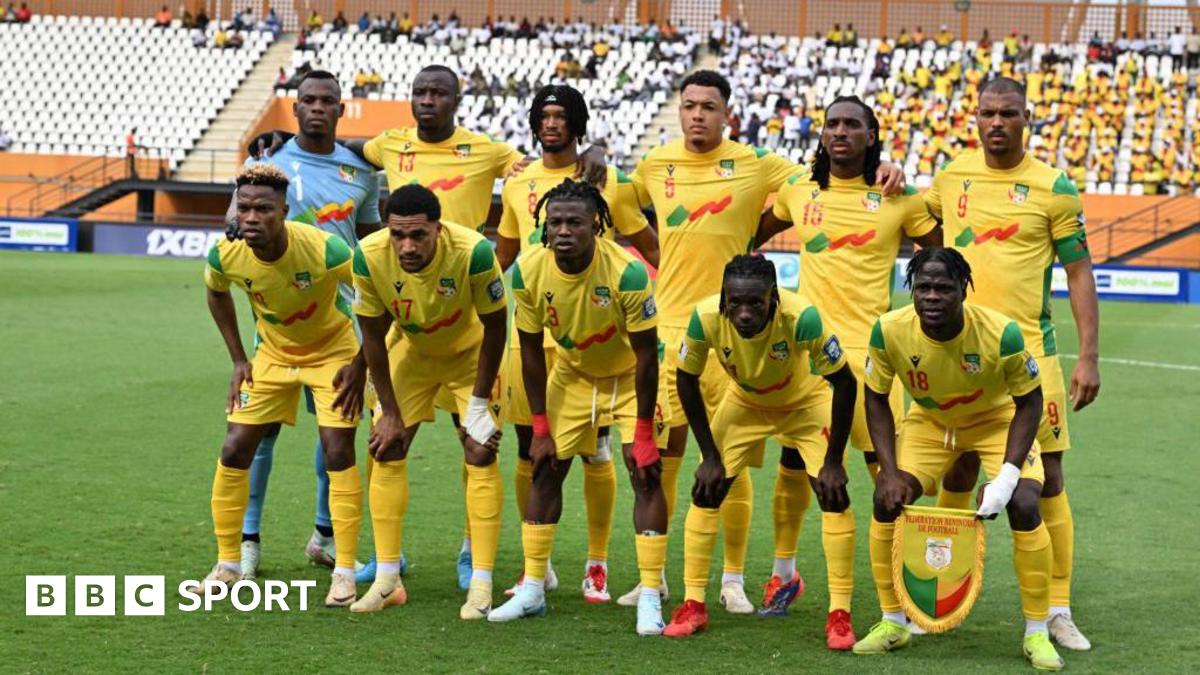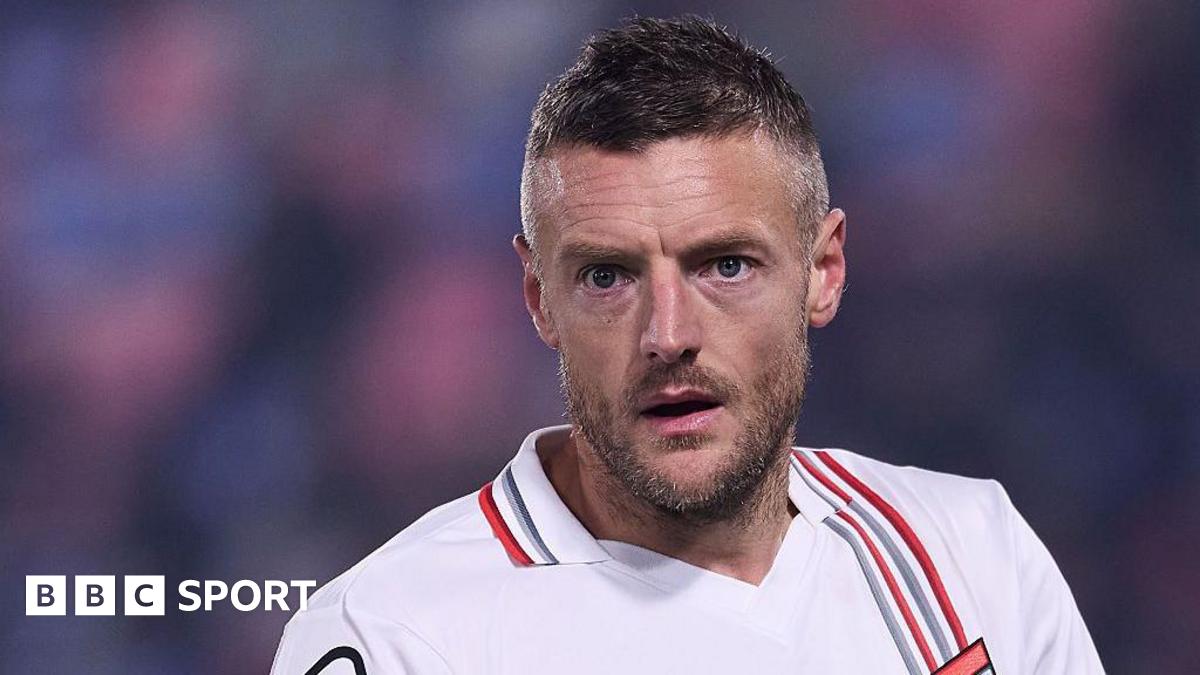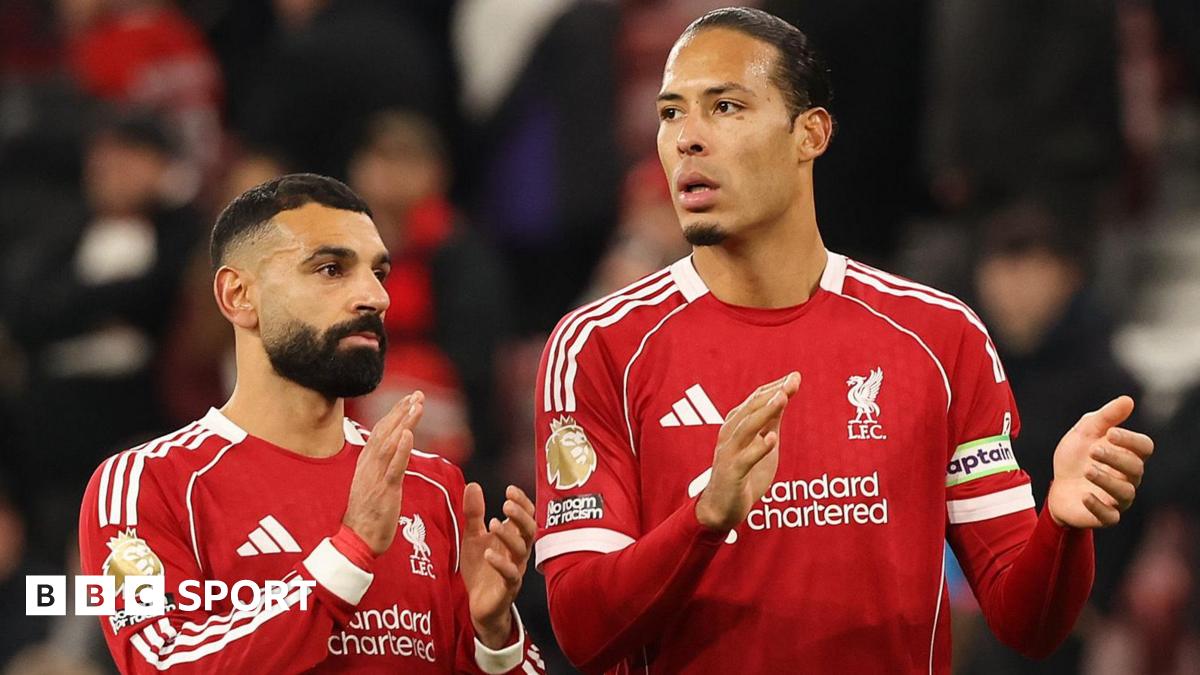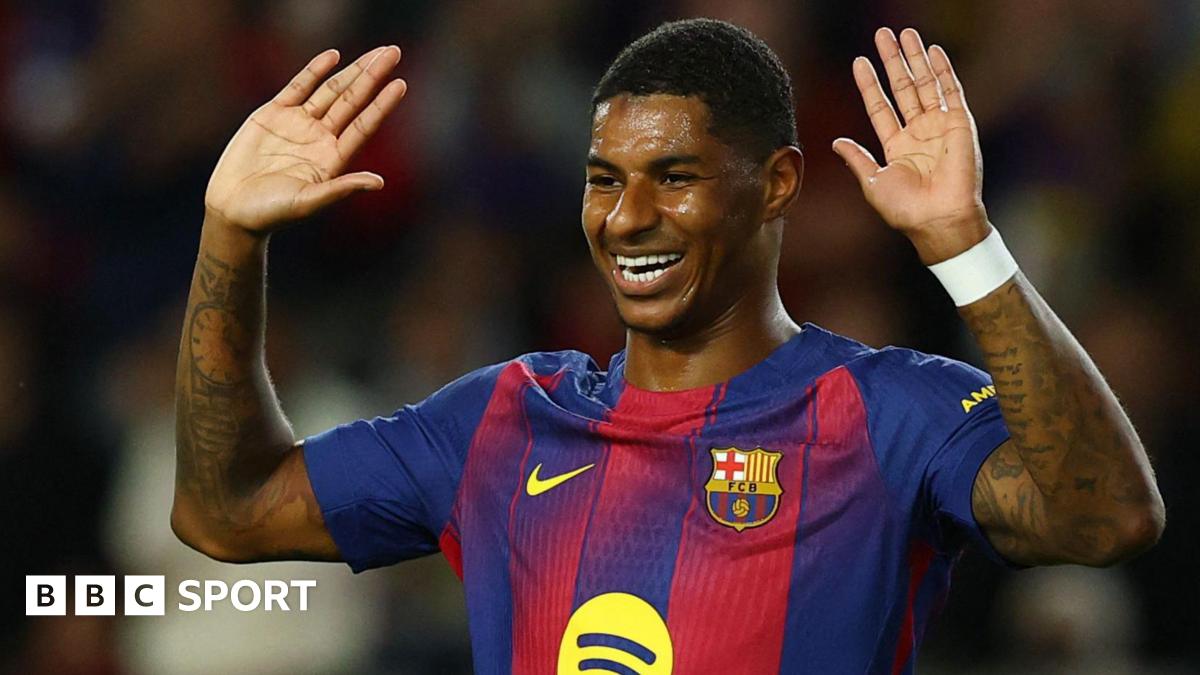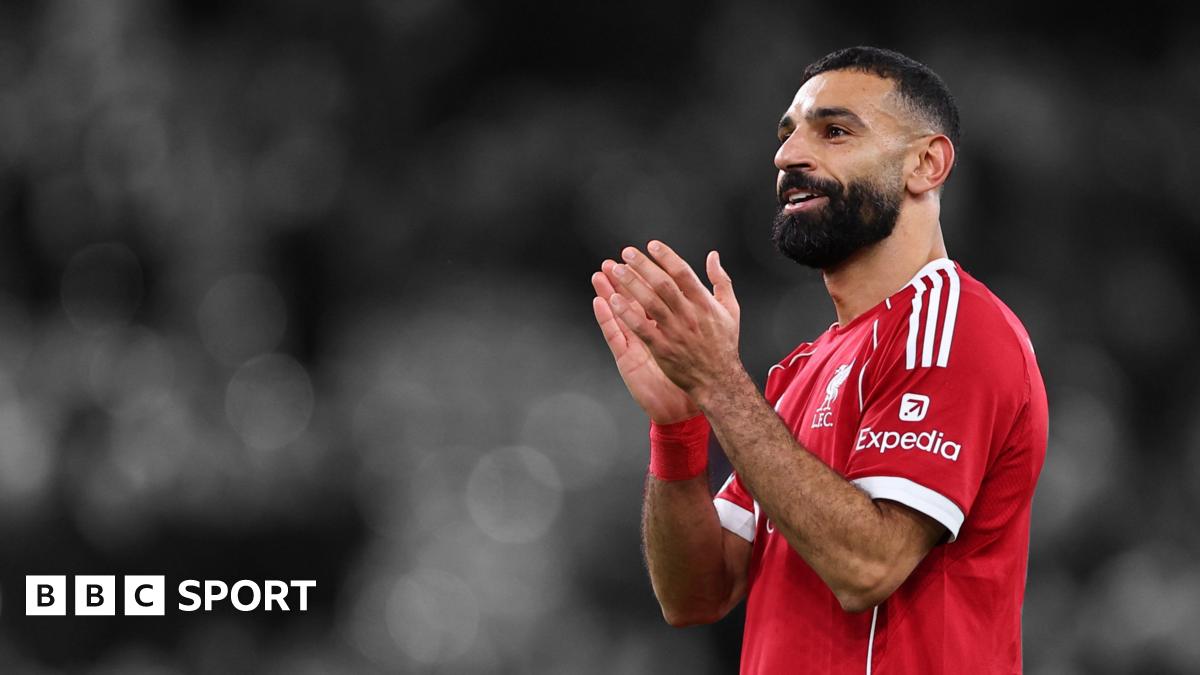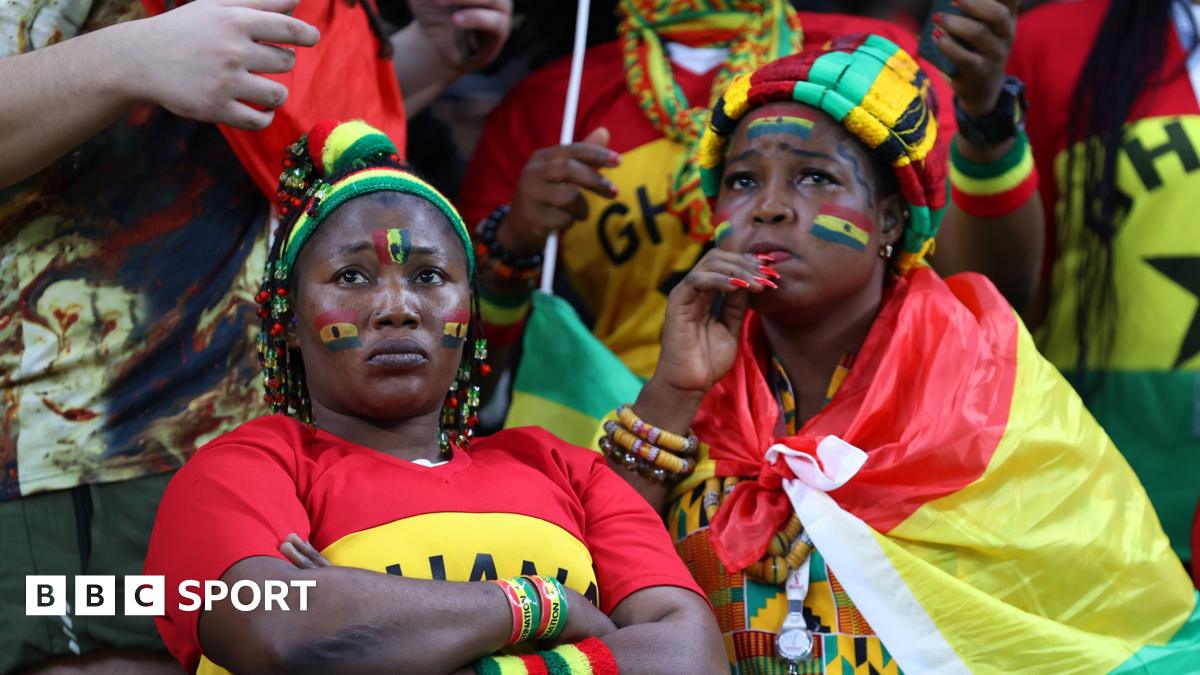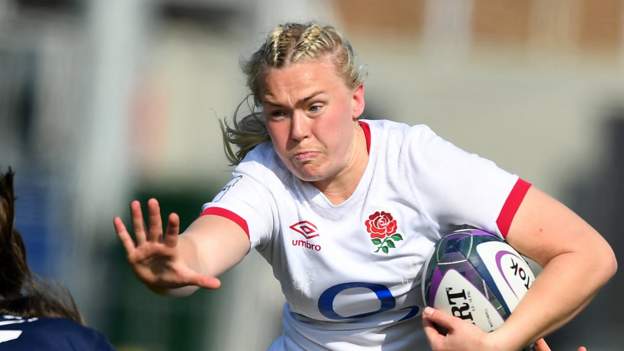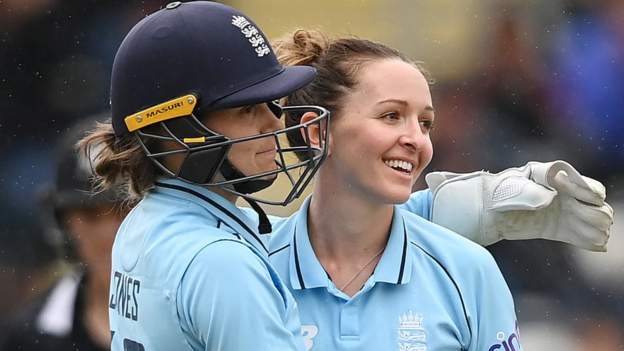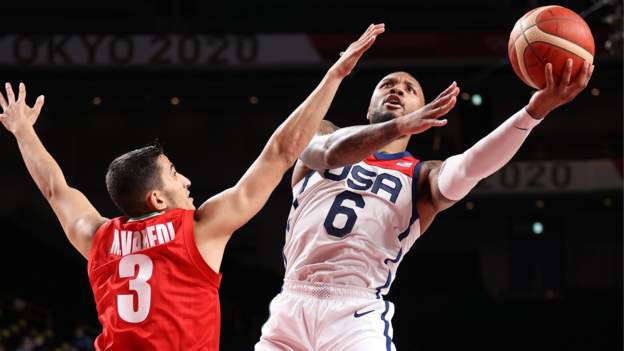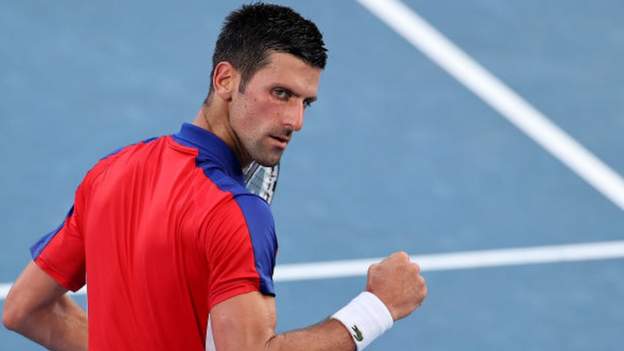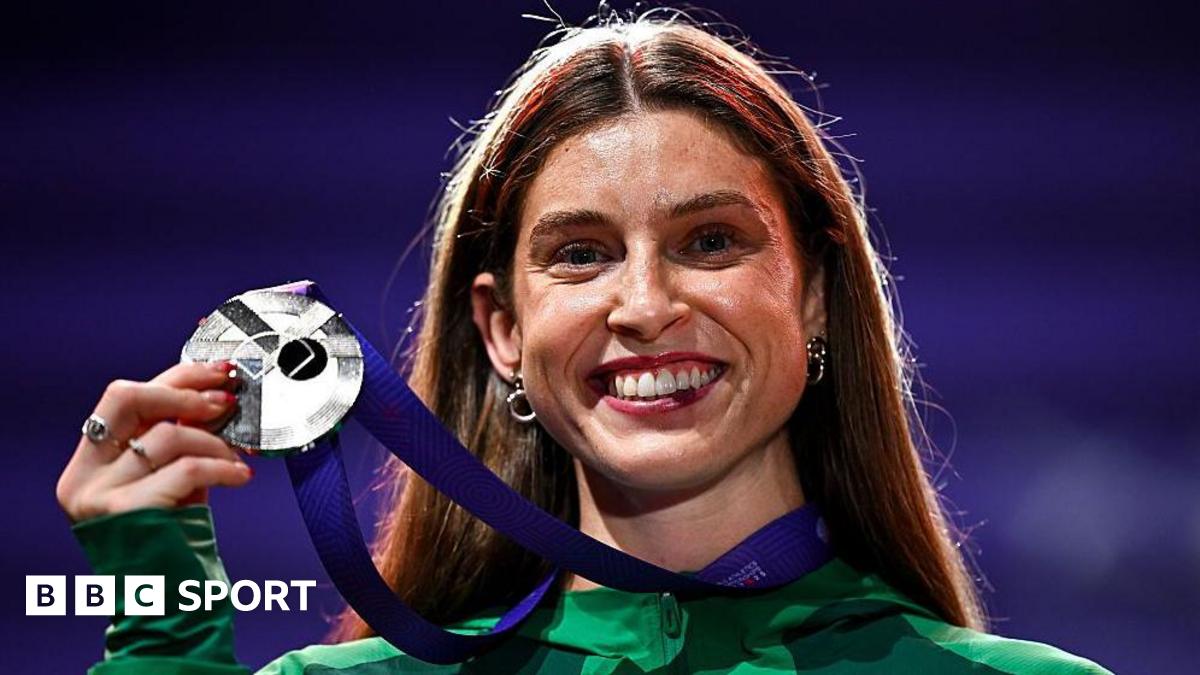| Date: Sunday, 3 April Kick-off: 15:00 BST Venue: Stadio Sergio Lanfranchi, Parma |
| Coverage: Live on BBC Two, BBC iPlayer and the BBC Sport website |
England’s dominance is plain to see in their recent results – 57-5, 89-0, 51-12, 56-15.
It has been almost a year since the Red Roses have won by fewer than 30 points but, when asked if his side will ease up, head coach Simon Middleton only laughed.
“Oh no, that will never happen,” he chuckled.
England did not become world number ones by slowing down, nor have they claimed three Women’s Six Nations titles in a row by going easy on their opponents.
Being the only fully professional side in the competition, they stifle the opposition with their superior fitness and organisation.
England gave full-time contracts to 28 players in 2019 and other teams are starting to follow suit, with Wales offering 12 for the first time ahead of this year’s tournament.
The majority of France’s players are semi-professional, while 10 Scotland players have contracts, Ireland receive a sum for every day they play and Italy only get expenses.
England are three years ahead of the rest – and catching up will take a long time.
On Sunday the Red Roses face Italy and although they are primed to “expect the unexpected”, what is very much expected is another big victory.
England have not lost to the Azzurre in any of their 21 previous meetings and scored a total of 1,000 points in the fixture to Italy’s 125.
Middleton’s side have surpassed 50 points in five of their last six meetings with Italy – who have not scored a try against England in their last four matches.
England must ‘justify’ overload training
The last time England lost was in July 2019 – and they have racked up 19 wins in a row since then.
With another success almost certain, they have to find other things to play for. One target set by Middleton is to “justify” the way his side train.
Fly-half Helena Rowland said earlier in the week England are being “overloaded” in their first three games of the tournament in order to improve fitness.
“They said to us, going into the first three games, that we weren’t necessarily going to feel fresh,” the 22-year-old told BBC Sport.
“Our training week hasn’t changed much from our pre-Six Nations camps to our match-week camps. It’s pretty tough, it’s pretty intense but it’s what we need as players to get better.”
Middleton has challenged his players to reproduce all the effort put in during the week as he added: “We’ve got to really impose ourselves and get out of playing what we put in in training.”
England preparing for ‘biggest of games’
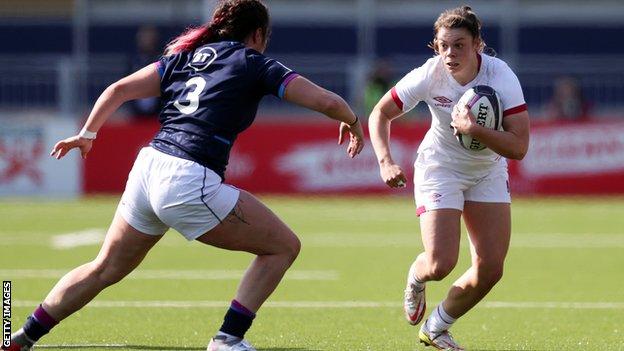
Given how long it has been since their last defeat, some in Middleton’s squad have never lost with England.
Avoiding complacency is surely a challenge, but the head coach said the intense competition for starting spots keeps players focused.
Middleton is rotating his 40-player squad through the first three games, giving all those fit to play an opportunity as he considers who should be picked for October’s World Cup.
Tournament organisers have not yet confirmed whether teams will be allowed squads of 36 or 30 in New Zealand, with Covid-19 a factor in the decision.
Either way, Middleton has some tough decisions to make – and he is not concerned any of his players may take victory for granted.
“They have a good understanding of why they haven’t lost yet,” he added.
Middleton cited “some very close games against France”, with the last three fixtures between the sides won by four points or fewer.
England’s game against the French in Bayonne on 30 April is likely to decide the Women’s Six Nations title, with the sides also facing each other in the World Cup pool stage.
“We have been in situations where we should have lost games, but it has been a really good trait of the side that we have managed to steal victory from defeat at times,” said Middleton.
“They understand that, in the biggest of games, the margins are fine.”
While the result in Italy may be easy to predict, the World Cup final on 12 November at Eden Park will be “the biggest of games”.
The ultimate prize – reclaiming the title of world champions from tournament hosts New Zealand – is seven months away. Regardless of who they play, England will not be easing off before then.




